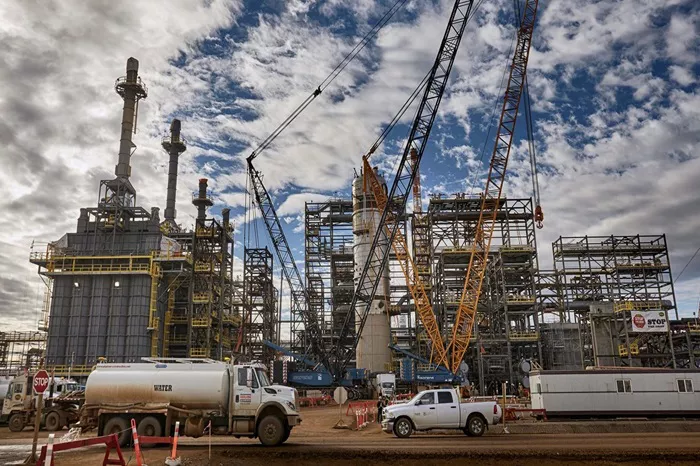A coalition of Canadian oil companies, known as the Pathways Alliance, reacted to new federal legislation by removing all references to their emission-reduction efforts from their websites. This decision followed the passage of amendments to the Competition Act that could expose firms to legal action for “greenwashing”—misleading claims about environmental performance.
The Pathways Alliance, which includes major players like Canadian Natural Resources, Cenovus Energy, and Suncor Energy, expressed concern that the amendments create substantial uncertainty for companies wishing to communicate their environmental initiatives. “Imminent amendments to the Competition Act will create significant uncertainty for Canadian companies that want to communicate publicly about the work they are doing to improve their environmental performance,” the alliance stated in June.
To address these concerns, the alliance added a FAQ section to its website, outlining its reservations about the new regulations. They criticized the vagueness of the proposed public disclosure standards, which rely on “internationally recognized methodologies” that may invite frivolous litigation.
The amendments effectively warn the oil industry against publicly claiming progress in emission reductions unless such claims are thoroughly substantiated. In response, oil sands producers have ceased discussions about their transition efforts, prompting climate activists to escalate their demands for further emission cuts.
A recent report from the Pembina Institute, a climate think tank, accused oil sands companies of prioritizing investments in increased oil production over emission reductions. “For the first time since the pandemic, companies are allocating capital to increase their production—but are still yet to make meaningful investments in projects to reduce emissions,” the report cautioned.
The report highlighted that the six companies in the Pathways Alliance did not report any significant investments in emission reduction projects in their latest financial statements, noting that their flagship carbon capture initiative appears stalled in the early stages of development.
Matt Dreis, a senior oil and gas analyst at the Pembina Institute and author of the report, emphasized that the new legislation does not prevent companies from announcing final investment decisions on carbon capture or emissions reduction projects. “If we want to be leaders in that sector, we’re going to need to get projects like this across the finish line,” Dreis remarked.
Despite this, the Pathways Alliance appears more inclined to invest in boosting production rather than advancing carbon capture efforts. The report observed that this trend indicates a robust financial position for these companies, bolstered by two years of record profits.
The oil and gas sector remains the largest contributor to Canada’s greenhouse gas emissions, accounting for 28% of total emissions based on 2021 data. The federal government aims to reduce emissions from 171 million tons in 2019 to between 106 and 112 million tons by 2030. The industry has resisted this target, arguing it would effectively impose a cap on oil production.
Suncor CEO Rich Kruger expressed support for a carbon pricing system, believing it would incentivize innovation. However, he also voiced concerns that the emissions cap, as structured, could limit production capabilities.
Trudeau’s government’s emissions reduction plan has sparked protests in Alberta and intensified divisions over climate policy in Canada. Meanwhile, if the Pembina Institute’s analysis is accurate, emissions from oil sands production are on the rise due to increased output. Climate activists are likely to demand a halt to oil production—something the Pathways Alliance seems unwilling to entertain at this time.
However, the Pathways Alliance remains committed to pursuing its carbon capture and sequestration (CCS) project, which aims to mitigate carbon dioxide emissions from oil sands production. “The new law does not change the intent of Pathways Alliance nor the work we are doing,” said Kendall Dilling, the organization’s president. He acknowledged the difficulties posed by the vagueness of the law but reaffirmed their commitment to collaborating with the government on CCS initiatives.
Related topic:
Can You Get Carbon Monoxide Poisoning From Fuel Oil?

